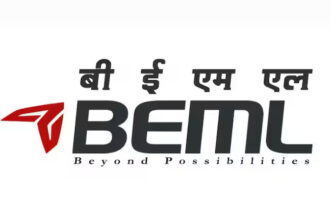BEML Ltd, a well-known company in the fields of rail, defence, and heavy engineering, is taking important steps to strengthen its presence in transportation and dredging.
One of the agreements, a Memorandum of Understanding (MoU), was signed with Siemens Limited, India. This partnership aims to explore possibilities in semi-high-speed and suburban passenger trains, metro rail, and commuter train networks. As India modernizes its public transport system, BEML and Siemens could work together to bring advanced rail technology to the country. If this partnership leads to new projects, it could allow BEML to expand its role in the railway sector, which is seeing strong government investment and increasing demand for efficient public transport.
BEML’s second agreement was signed with Dragflow S.R.L., an Italian company known for its expertise in dredging solutions. Dredging plays a crucial role in maintaining waterways, ports, and coastal infrastructure. With this collaboration, BEML aims to strengthen India’s capabilities in this field, potentially improving port management and inland water transport. Given India’s vast coastline and dependence on maritime trade, better dredging technology could help ensure smooth operations at ports and water channels.
While these strategic partnerships indicate future growth, BEML’s financial performance in Q3 showed some challenges. The company’s net profit nearly halved, dropping to ₹24.4 crore from ₹48.2 crore in the same period last year. Revenue also declined by 16.3%, standing at ₹876 crore compared to ₹1,047 crore in the previous year. These figures suggest that BEML faced difficulties in maintaining its earnings, possibly due to market conditions or operational factors.
However, despite the decline in overall earnings, BEML’s profitability margins improved. The company’s EBITDA increased by 8%, reaching ₹60.6 crore. The EBITDA margin also rose to 7%, up from 5.4% last year, marking an improvement of 160 basis points. This positive development was largely due to cost-cutting measures and reductions in employee and operational expenses. Although revenue took a hit, better cost management allowed BEML to maintain stable profitability levels.

